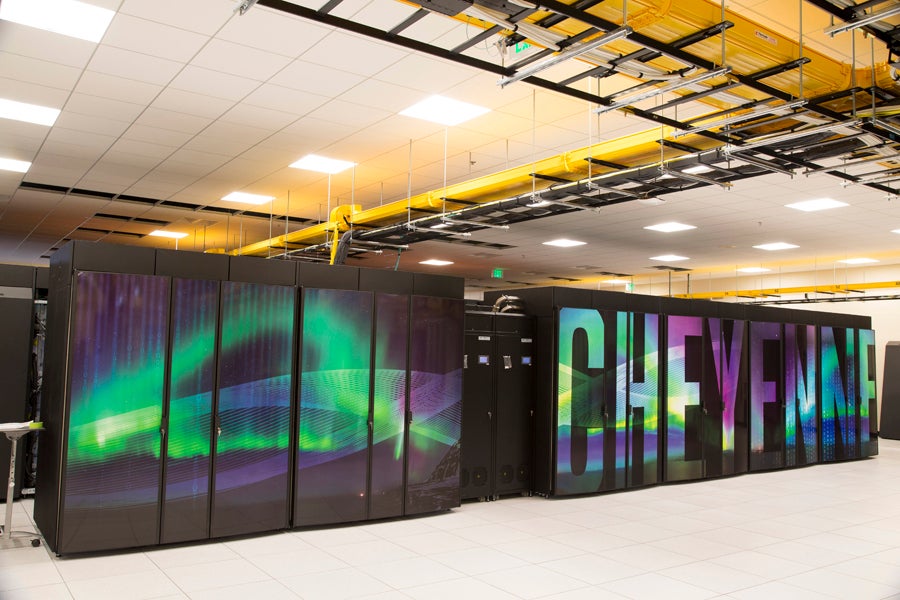NCAR-operated supercomputer to join national COVID-19 computing consortium
Powerful system will be used to learn more about the deadly pandemic
Apr 6, 2020 - by David Hosansky
Apr 6, 2020 - by David Hosansky
The National Center for Atmospheric Research (NCAR) is joining the COVID-19 High Performance Computing Consortium by providing one of the nation's leading supercomputers to help research the deadly pandemic caused by the COVID-19 virus.
The NCAR-operated Cheyenne supercomputer, a 5.34-petaflop machine that ranks among the world's 50 fastest, will be available to scientists across the country who are working to glean insights into the novel coronavirus that has spread worldwide. Researchers are mounting a massive effort to learn more about the behavior of the virus, such as transmission patterns and whether it is affected by seasonal changes, even as they work toward the development of treatments and vaccines.
"Advanced computing technology is crucial for better understanding the spread and behavior of COVID-19 and helping to protect society from this deadly virus," said NCAR Director Everette Joseph. "We are very pleased that the Cheyenne supercomputer will contribute to this critical effort."
The Cheyenne supercomputer, built by SGI (now Hewlett Packard Enterprise), is one of the world's leading supercomputers for Earth system sciences. It is funded by the National Science Foundation, which is NCAR's sponsor, and by the State of Wyoming through an appropriation to the University of Wyoming. The system is housed at the NCAR-Wyoming Supercomputing Center in Cheyenne, and it encompasses tens of petabytes of storage capacity in addition to the supercomputer.
The White House last month announced the launch of the COVID-19 High Performance Computing Consortium, a unique public-private consortium spearheaded by the White House Office of Science and Technology Policy, IBM, the U.S. Department of Energy, and the National Science Foundation (NSF). It enables researchers to access the most powerful high-performance computing resources to accelerate understanding of the COVID-19 virus and develop methods for combating it.
“The National Science Foundation is very pleased to be part of the COVID-19 HPC Consortium and provide access to the Cheyenne supercomputer and the NCAR-Wyoming Supercomputing Center," said Anjuli Bamzai, director of the NSF Division of Atmospheric and Geospace Sciences. "Cheyenne and other NSF-funded high-end computing resources will enable the nation's research community to pursue advanced modeling using artificial intelligence techniques and other approaches, to gain vital insights into COVID-19 and potential strategies for protecting society.”
COVID-19 researchers can submit research proposals to the consortium, via an online portal, which will then be reviewed and matched with computing resources from one of the partner institutions. An expert panel of top scientists and computing researchers will work with proposers to quickly assess the public health benefit of the work and coordinate the allocation of the consortium’s powerful computing assets.
The consortium's world-class supercomputers process massive amounts of calculations that can answer complex scientific questions in hours or days instead of weeks or months. Such computing power is at a premium and can be difficult for scientists to procure under normal circumstances.
"With society facing an unprecedented challenge, it is imperative to mobilize the most advanced scientific resources in order to protect lives and livelihoods," said Antonio Busalacchi, president of the University Corporation for Atmospheric Research (UCAR), which manages NCAR on behalf of NSF. "We look forward to contributing to this unique partnership of government, private sector, and academic supercomputing resources, which will provide critical assistance to researchers working to understand COVID-19 and bring it under control."
